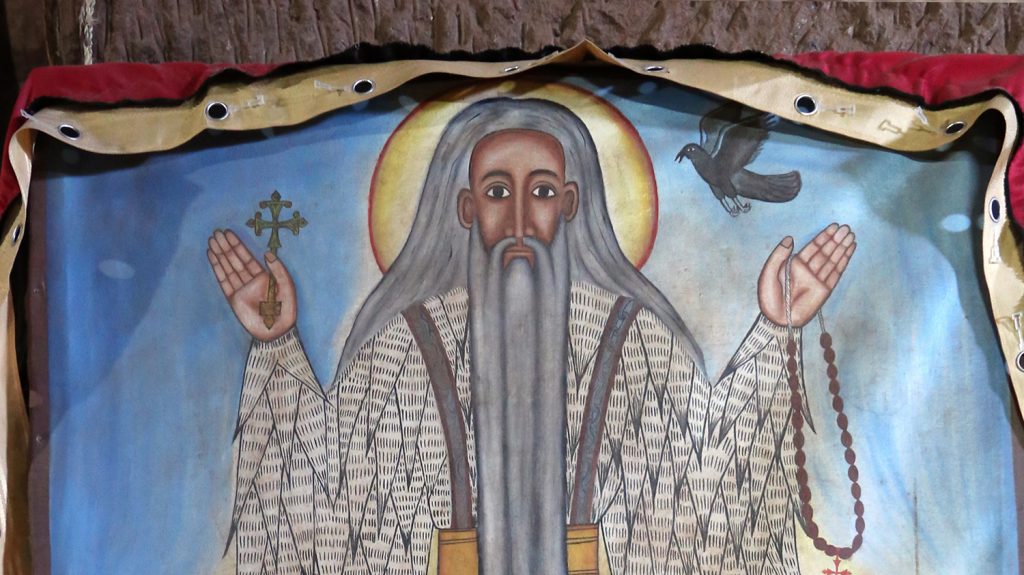Today is one of the feast days of Gabra Manfas Qeddus, a top saint in Ethiopia, who grew a coat of white hair when he was living in the wilderness (above). He was so holy that (according to legend) he was only three days old when he said, ‘Glory be to the Father, Son and Holy Ghost.’ When his mother tried to breastfeed him on a Wednesday (a fasting day in Ethiopia), he rebuked her with the words, ‘What, on a Wednesday?’ Qeddus’s life and sanctity is celebrated on every 5th day of the month in Ethiopia’s 13-month calendar.
The ‘Little Judgment Day’ earthquake devastated Istanbul early this morning in 1509. It is thought that almost 10 per cent of the population were either killed or injured in the quake itself and the tsunami which followed. While 109 mosques were reduced to ruin, the Hagia Sophia, formerly a church but by now a mosque, suffered light damage. The plaster that had been used to cover up the colourful Byzantine mosaics of Christ, Mary and the saints was shaken off, and had to be repaired. The convulsion was termed Kıyamet-i Sugra (‘Little Judgment Day’), with Sultan Bayezid II blaming the sins of his ministers, while Europe’s Christian rulers thought God was shaking things up because of Turkish aggression towards Christians.
William Morgan, who produced the first ever Welsh translation of the Bible while he was a vicar on the Welsh Marches, died today in 1604. His Bible was published in 1588, 25 years after Elizabeth I had passed the Act for the Translating of the Bible and the Divine Service into the Welsh Tongue, and it was the first Bible in Europe to be translated into a minority, non-official language of a state. On publication, every parish in Wales received a copy of the Bible, which helped save the Welsh language from dying out, as well as making the stories and teaching of the Bible available to Welsh-speaking people for the first time.
Thomas Wolsey was made a Cardinal today in 1515 by Pope Leo X, the Medici Pope who six years later excommunicated Martin Luther.
Giovanni Valentino Gentile was beheaded in Bern today in 1566 for holding heretical beliefs about the trinity. A refugee from Calabria in southern Italy, he had settled in Calvin’s Geneva a decade earlier with several other Italian families, who had not only rejected the Roman Church but also rejected the trinity, saying it was a human invention. Gentile had been imprisoned, but escaped punishment when he agreed to renounce his ‘notorious blasphemies’ and burn his books in public. This time, though, in 1566, he stuck to his Arian beliefs and had his head chopped off.
Image: Sailko
